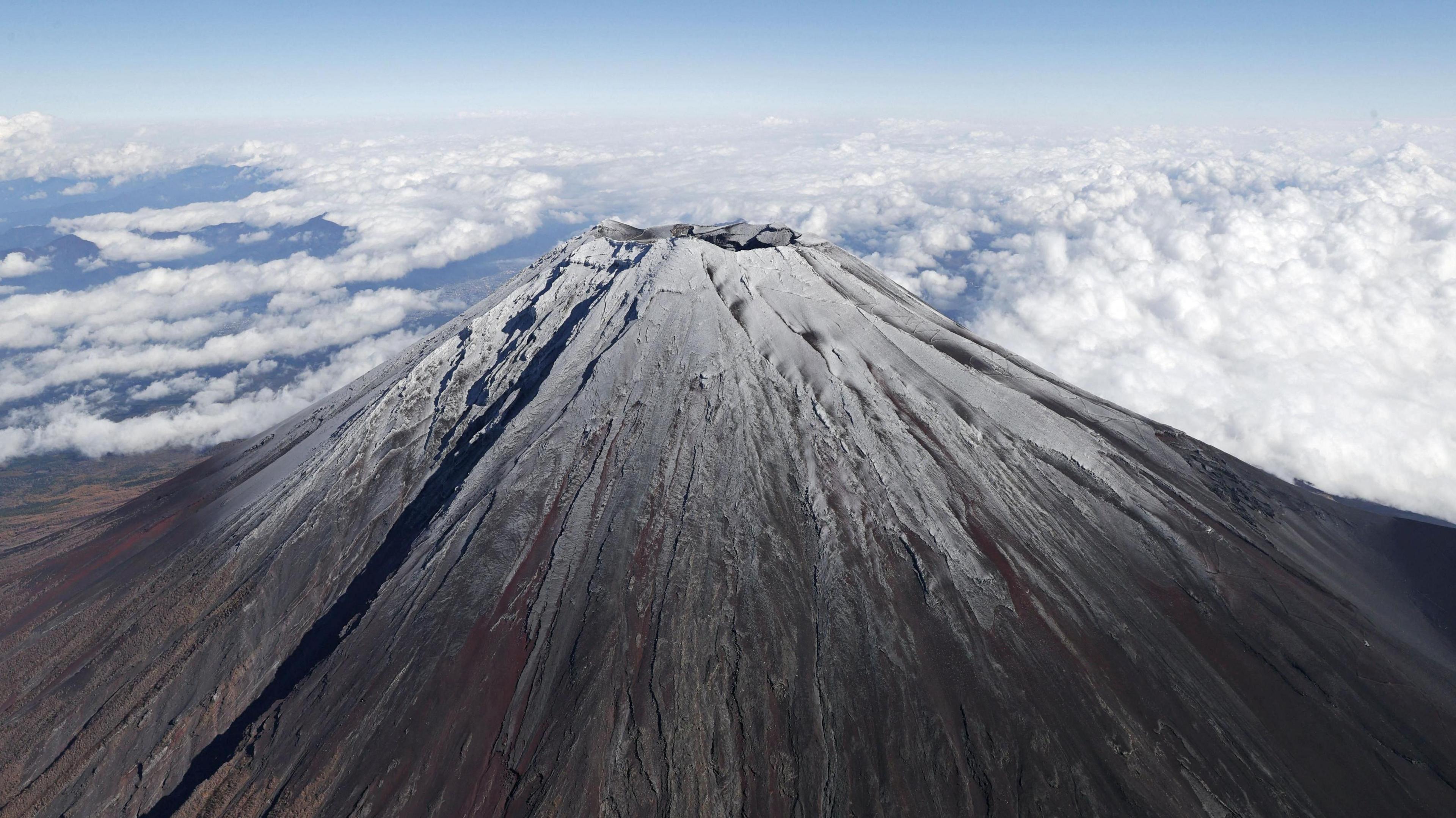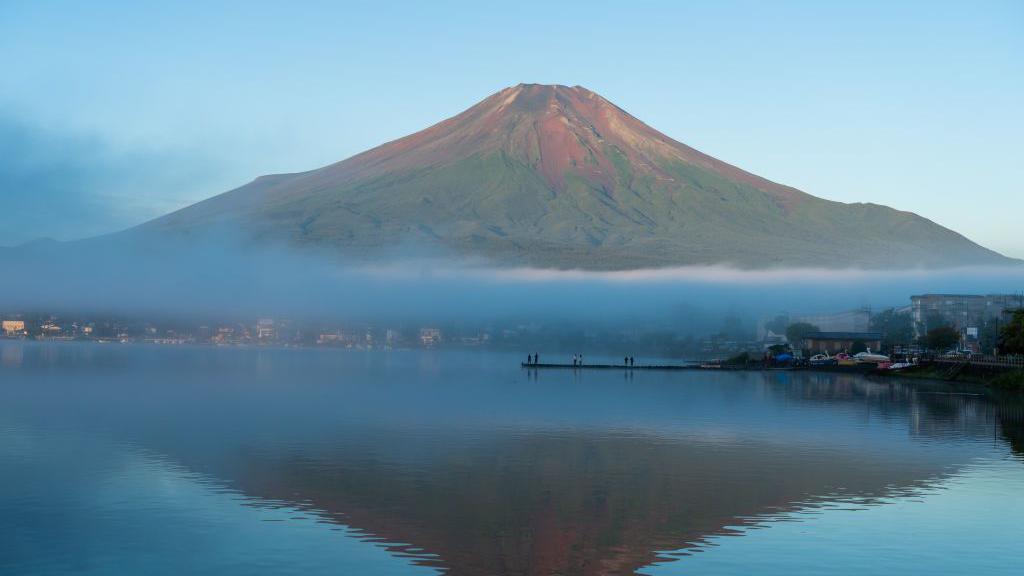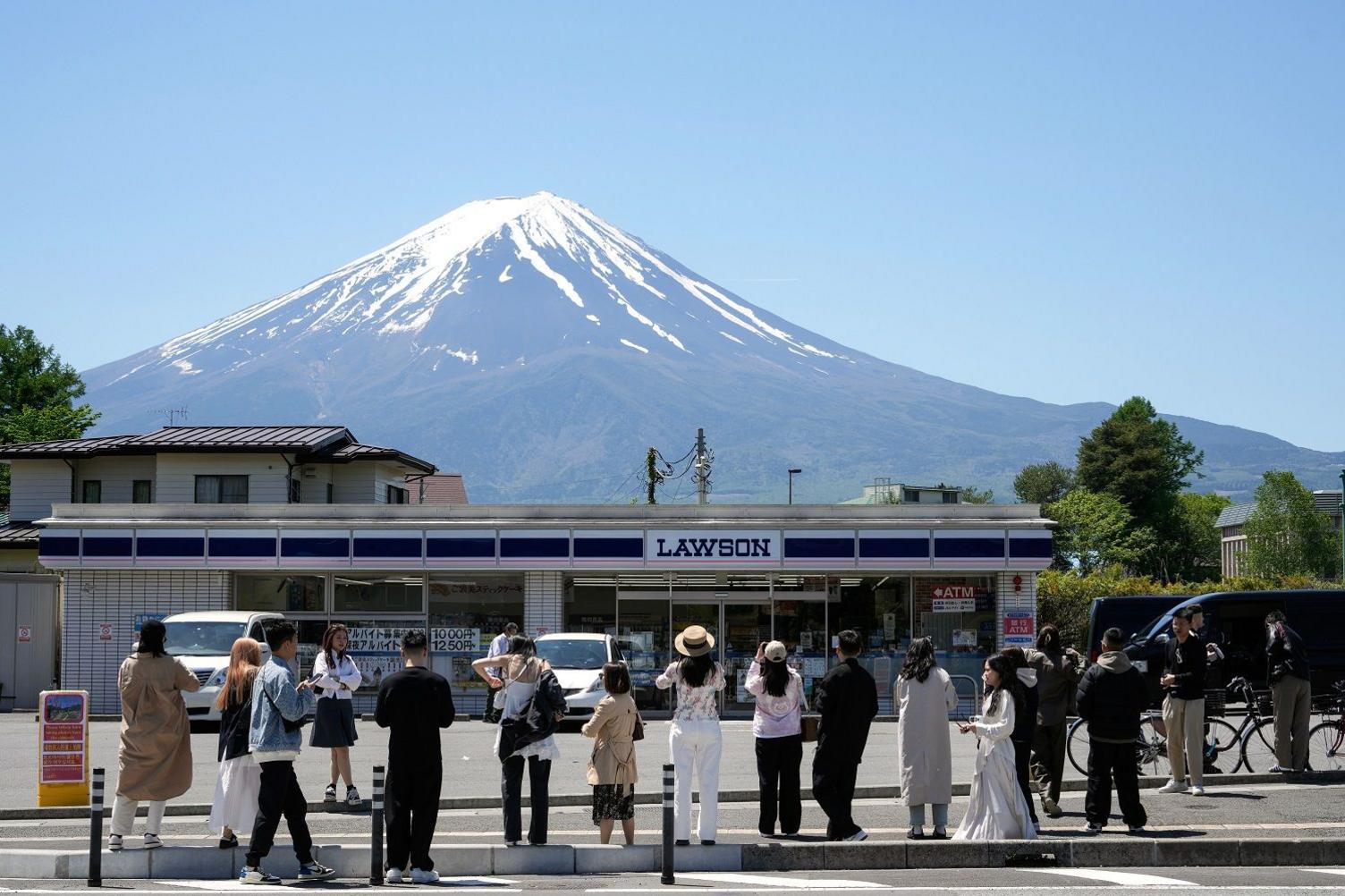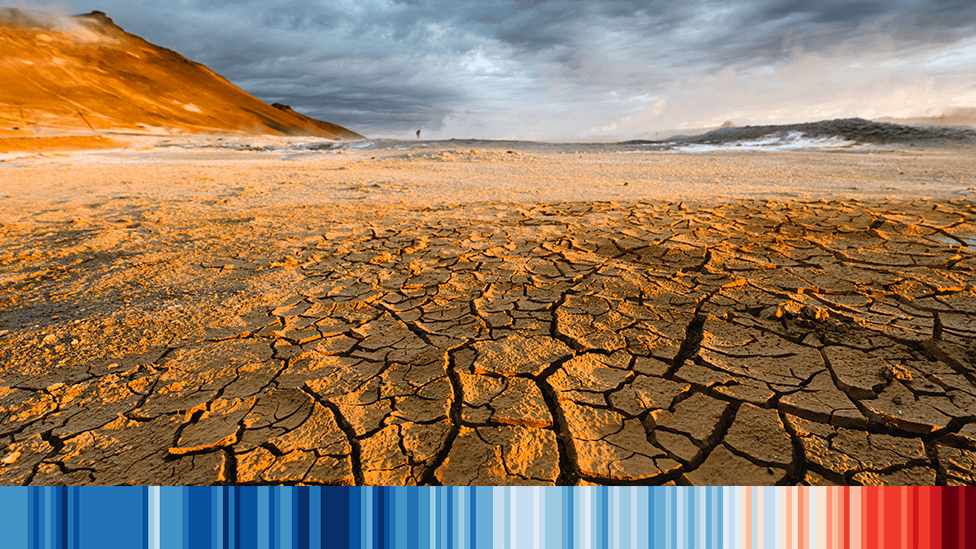Snow back on Mount Fuji after longest absence

Mount Fuji has again donned its famed snowcap
- Published
Japan's Mount Fuji has seen its first snowfall after going through the longest period without snow since records began 130 years ago.
Snow fell on Japan's highest peak about a month later than expected, as the country recovers from one of its hottest summers.
The news was welcomed, with locals celebrating and sharing photos of the snow-clad peak.
Mount Fuji is one of Japan’s most popular tourist attractions and has inspired centuries of artwork.
Snow was spotted on Wednesday, 6 November, by the Japan Meteorological Agency’s branch in Shizuoka.
As photos of the snowy peak spread on Wednesday, an X user commented, "Oh, I've been waiting for this". Another wrote, "I've never been so excited for the first snowfall this year".
“Finally… make-up makes you look even more beautiful,” read a third tweet, referring to the white peak.
The weather agency’s office in Kofu officially confirmed the presence of snow on Mount Fuji's peak on Thursday. It could not do so on Wednesday due to clouds obstructing the view of the summit.
This was the most delayed sighting since 2023 when snow was first seen on the summit on 5 October, according to AFP news agency. The previous record was 26 October - that happened twice, in 1955 and 2016.
Located south-west of Tokyo, Mount Fuji stands at 3,776m (12,460 ft). It last erupted just over 300 years ago and is visible from the capital on a clear day.
With temperatures between June and August 1.76C (3.1F) higher than average, Japan had its joint hottest summer on record - the other was in 2003.
The warmer-than-usual weather continued in September.
While it's hard to attribute delayed snowfall on Mount Fuji directly to climate change, it is in line with what experts predict in a warming world.
- Published29 October 2024

- Published21 May 2024

